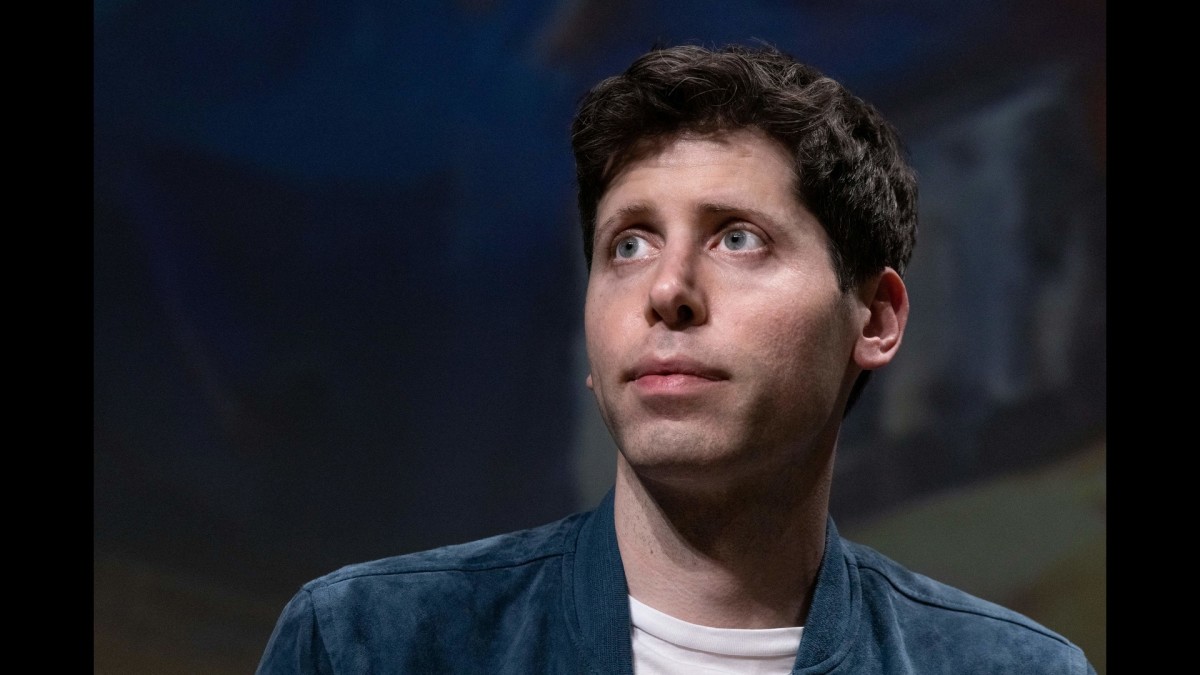The race for Artificial General Intelligence (AGI) continues getting spicier.
Except it’s a lot less like a sprint, but more like a high-stakes soap opera starring the biggest minds in the tech world.
💵💰Don’t miss the move: Subscribe to TheStreet’s free daily newsletter💰💵
The relentless push spans big-money bets and headline-making hires, all of which are part of a broader play to avoid coming in second.
Needless to say, there’s plenty on the line here. However, the public mud-slinging between AI leaders, especially over talent, is what’s catching everyone off guard.
It appears the gloves are off in the AI talent war, and the industry’s needle-movers are swinging for the fences. The space is seemingly shifting from hype to execution, and everyone’s looking to see who cracks AGI first.
 OpenAI CEO Sam Altman is sparring with big-Tech rivals over AI workers.
OpenAI CEO Sam Altman is sparring with big-Tech rivals over AI workers.
Image source: Saget/AFP via Getty Images
Inside Big Tech’s superintelligence push
AI powerhouse OpenAI’s ChatGPT lit the fuse three years ago, when suddenly, AI could chat, code, and riff like a human.
Related: Google plans major AI shift after Meta’s surprising $14 billion move
By 2023, we saw its models getting smarter, quicker, and more creative, with the likes of Google, Anthropic, and Meta Platforms (META) joining the race.
That ushered in the open-source surge, proving top-tier AI wasn’t just at the mercy of Big Tech.
Now the focus is on AGI-superintelligent systems that can think, learn, and outsmart humans across the board.
To put things in perspective, Superintelligent AI, or AGI, isn’t just your regular chatbot. It’s a transformative force that may revolutionize everything from drug discovery to enterprise software.
For tech giants like Meta Platforms (META) , this may entail embedding intelligence across their ecosystem. From their ubiquitous social platforms to VR worlds, this could create new revenue streams and defend against disruption.
Unsurprisingly, the stakes go way beyond just market share.
Governments view AGI as a national security asset. Retaining the industry’s cream, coupled with regular breakthroughs on home turf, has become geopolitical.
More On Meta Platforms
- Veteran portfolio manager raises eyebrows with latest Meta Platforms move
- Google plans major AI shift after Meta’s surprising $14 billion move
- WhatsApp is making a change that users won’t like
Hence, the victors won’t just dominate tech in this ongoing war for AI’s future; they could potentially reshape the global economy as we know it. Consequently, a talent war is heating up, and the company that cracks AGI first could dominate the decade.
OpenAI CEO slams Meta’s $100 million offers as a culture misfire
OpenAI CEO Sam Altman didn’t hold back.
In a podcast hosted by his brother, he revealed that Meta Platforms dangled $100 million signing bonuses to lure OpenAI staff, only to fail. “None of our best people have decided to take them up on that,” he said.
Related: Mark Zuckerberg’s net worth: How the Facebook founder hit $200 billion
The AI trailblazer framed the offers as mostly desperate and misguided. “I don’t think that’s going to set up a great culture,” Altman said, taking a dig at Meta’s compensation-first recruiting strategy.
He also discussed OpenAI’s edge in the fast-evolving race for superintelligence and long-term value. “People look at the two paths and say…OpenAI has got a really good shot,” he added.
Altman believes a great team is built on a collective purpose and the aim to accomplish something revolutionary. He also slammed Meta’s AI efforts to date “have not worked as well as they hoped,” suggesting a lack of an innovative culture might be the chief reason.
The remarks came just days after Meta committed $14.3 billion to Scale AI and tapped its CEO, Alexandr Wang, to lead a new superintelligence project.
The project aims to achieve AGI, transcending normal human intelligence. Moreover, reports suggest Meta CEO Mark Zuckerberg set out to recruit 50 top engineers and researchers to form his dream team.
Perhaps a big part of Meta’s recent AI push likely stems from its lukewarm reception compared to ChatGPT and DeepMind’s models. After shelling out billions on his metaverse vision, Zuckerberg pivoted, chasing the next big thing in AI to stay in the game.
If the plan works out, Meta’s superintelligence play could reshape it all, covering everything from content to complex tasks to even an advanced version of the metaverse. It’s a moonshot move, but one that could pay many dividends down the road.
To bring that to life, it’s already made some huge moves.
Perhaps the biggest is its $14.3 billion bet on leading data labelling and annotation provider Scale AI for roughly 50% of the business. That’s Meta’s largest deal since its WhatsApp acquisition for $19 billion (the largest in the company’s history).
Scale AI’s 28-year-old spunky CEO, Alexander Wang, will lead the new superintelligence team. Zuckerberg needed a sharp, Altman-style operator to fast-track AGI and win the commercial AI race.
Also, it’s important to note that Meta’s talent hunt didn’t stop at OpenAI.
Of late, it has gone straight for DeepMind’s core, snagging big names like Koray Kavukcuoglu (a key architect at Google). Meta also successfully poached Dr. Jack Rae, a principal researcher known for cutting-edge models from Google DeepMind. Also, it successfully tapped voice AI expert Johan Schalkwyk from startup Sesame AI.
Related: Sam Altman and the failure that ultimately led to ChatGPT
